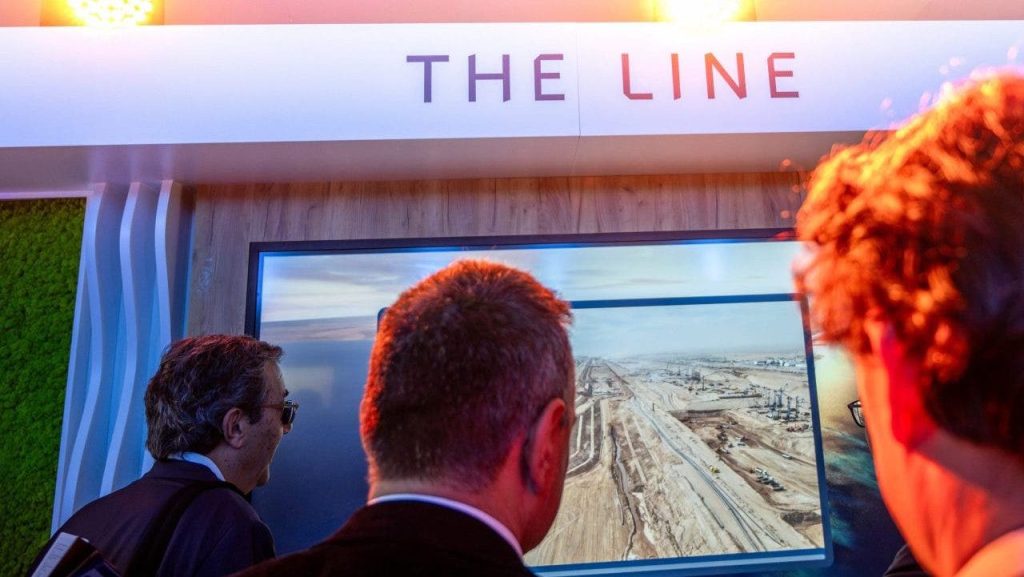A former Saudi Arabian intelligence officer, Colonel Rabih Alenezi, has accused the Saudi government of using lethal force to evict residents from land designated for the Neom development project, a futuristic eco-city. Alenezi claims that the government approved the use of lethal force against those who resisted eviction, particularly targeting the Huwaitat tribe, who have faced mass-arrests and crackdowns for not complying with orders. Several villages have already been demolished to make way for the Neom project, which is heavily funded by Western nations and is a key component of Crown Prince Mohamed bin Salman’s modernization efforts for the kingdom.
The Neom project includes the development of “The Line,” a 106-mile eco-city designed to eliminate the need for automotive vehicles. The city will be laid out in a linear fashion, with a focus on public transportation to enable quick travel throughout the urban area. Crown Prince Mohamed bin Salman has dedicated significant resources and attention to the project, hoping that its completion will symbolize a new era of modernization for Saudi Arabia. The Neom project is part of the Saudi Vision 2030 agenda, with plans to complete over two kilometers of The Line by 2030 and continue construction throughout the decade.
The Saudi government’s aggressive approach to clearing land for the Neom development project is a source of concern for human rights advocates and international observers. Colonel Rabih Alenezi’s claims of the use of lethal force against residents who refuse eviction highlight the challenges faced by communities affected by large-scale development projects in Saudi Arabia. The situation also sheds light on the power dynamics at play, with the government prioritizing the completion of the Neom project as a key component of its modernization efforts, even at the expense of local communities and human rights.
The plight of the Huwaitat tribe, who have been targeted for resisting eviction from the Neom project site, underscores the tension between development goals and the rights of indigenous communities in Saudi Arabia. The government’s harsh response to opposition from the Huwaitat tribe raises questions about respect for human rights and the rule of law in the kingdom. The use of lethal force to enforce eviction orders further complicates the situation, drawing attention to the need for greater transparency and accountability in the implementation of large-scale development projects in Saudi Arabia.
The Neom project and its flagship eco-city, The Line, represent Crown Prince Mohamed bin Salman’s vision for a modern, sustainable future for Saudi Arabia. The ambitious development plans for The Line seek to create a model city that prioritizes environmental sustainability and efficient transportation systems. While the project holds promise for economic growth and innovation, concerns about the treatment of affected communities and the use of force in clearing land for the development raise ethical and legal questions that must be addressed by the Saudi government and international stakeholders. As construction progresses on The Line and other components of the Neom project, continued scrutiny and advocacy for the rights of impacted communities will be critical to ensuring a balanced and equitable approach to development in Saudi Arabia.













